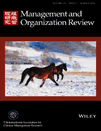 In the wake of Harvard’s gritty performance in the NCAA men’s basketball tournament — they were eliminated Saturday — a pair of faculty members at the Ivy League institution are calling foul on two controversial journal articles that have already been corrected.
In the wake of Harvard’s gritty performance in the NCAA men’s basketball tournament — they were eliminated Saturday — a pair of faculty members at the Ivy League institution are calling foul on two controversial journal articles that have already been corrected.
Walter Willett, an oft-quoted Harvard nutrition expert, is calling for the retraction of an eyebrow-raising article earlier this month challenging the relative health benefits of fats from fish and vegetables over those in meat and butter.
The article, which appeared in the Annals of Internal Medicine, quickly came under fire and the researchers — from the University of Cambridge — ended up making several corrections. Despite the changes, the authors have stood by their work, according to a piece this week in Science.
But that hasn’t stopped Willett from urging a retraction. Per Science:
Continue reading March Madness? Harvard profs take shots at controversial studies, request retractions
 Evidently the editors of the Journal of Religion and Health were a tad distracted when they published a paper earlier this year by Australian theologian Joseph Lee and his “colleague,” M. Theol.
Evidently the editors of the Journal of Religion and Health were a tad distracted when they published a paper earlier this year by Australian theologian Joseph Lee and his “colleague,” M. Theol.







